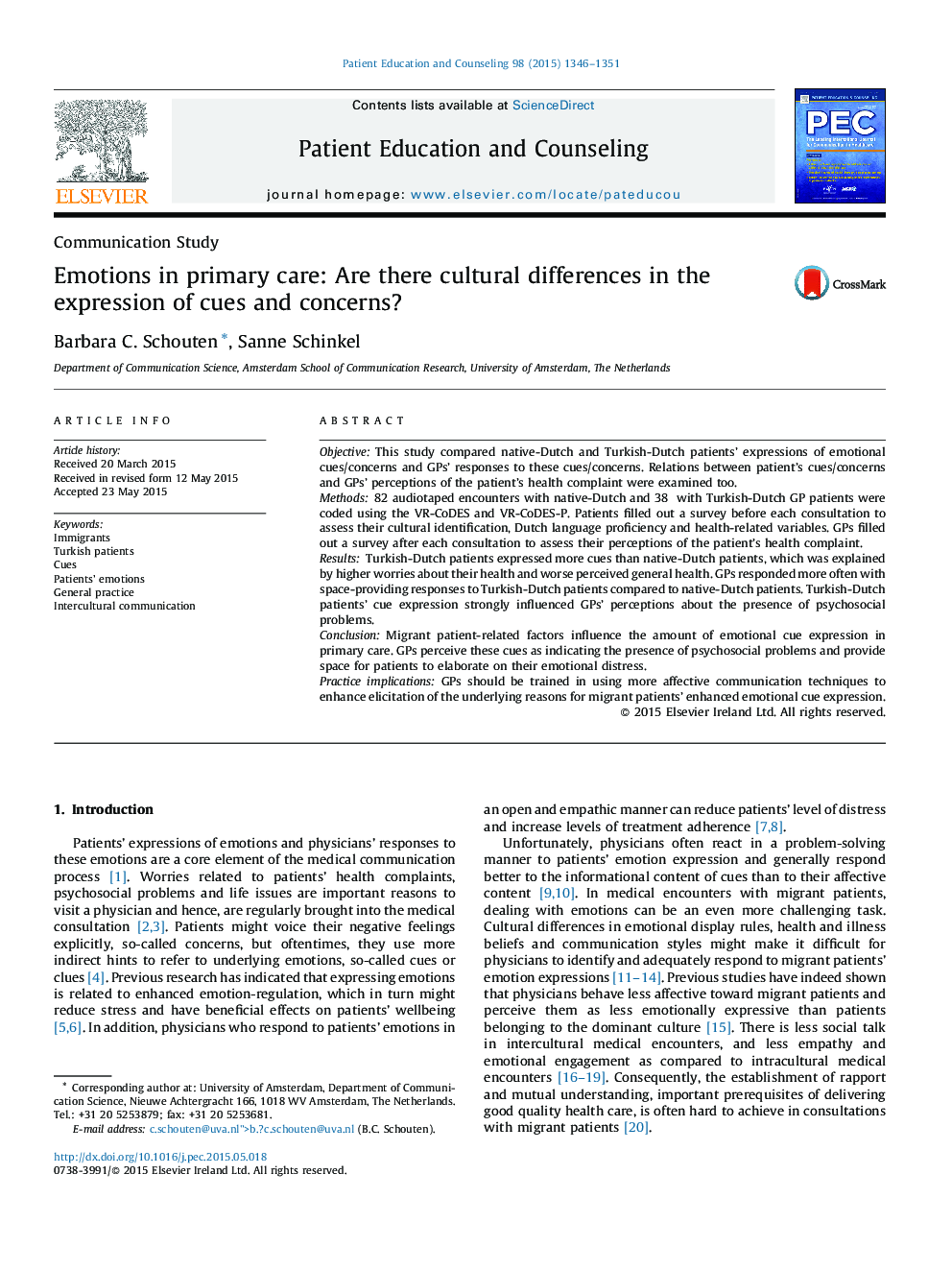| کد مقاله | کد نشریه | سال انتشار | مقاله انگلیسی | نسخه تمام متن |
|---|---|---|---|---|
| 6152854 | 1245972 | 2015 | 6 صفحه PDF | دانلود رایگان |
- Turkish-Dutch GP patients express more emotional cues than native-Dutch patients.
- Turkish-Dutch patients' emotional cues are related to GPs perceptions of psychosocial problems.
- GPs respond more often with space providing than space reducing responses.
- GPs seldom respond to the affective content of patients' emotional cues.
ObjectiveThis study compared native-Dutch and Turkish-Dutch patients' expressions of emotional cues/concerns and GPs' responses to these cues/concerns. Relations between patient's cues/concerns and GPs' perceptions of the patient's health complaint were examined too.Methods82 audiotaped encounters with native-Dutch and 38 with Turkish-Dutch GP patients were coded using the VR-CoDES and VR-CoDES-P. Patients filled out a survey before each consultation to assess their cultural identification, Dutch language proficiency and health-related variables. GPs filled out a survey after each consultation to assess their perceptions of the patient's health complaint.ResultsTurkish-Dutch patients expressed more cues than native-Dutch patients, which was explained by higher worries about their health and worse perceived general health. GPs responded more often with space-providing responses to Turkish-Dutch patients compared to native-Dutch patients. Turkish-Dutch patients' cue expression strongly influenced GPs' perceptions about the presence of psychosocial problems.ConclusionMigrant patient-related factors influence the amount of emotional cue expression in primary care. GPs perceive these cues as indicating the presence of psychosocial problems and provide space for patients to elaborate on their emotional distress.Practice implicationsGPs should be trained in using more affective communication techniques to enhance elicitation of the underlying reasons for migrant patients' enhanced emotional cue expression.
Journal: Patient Education and Counseling - Volume 98, Issue 11, November 2015, Pages 1346-1351
